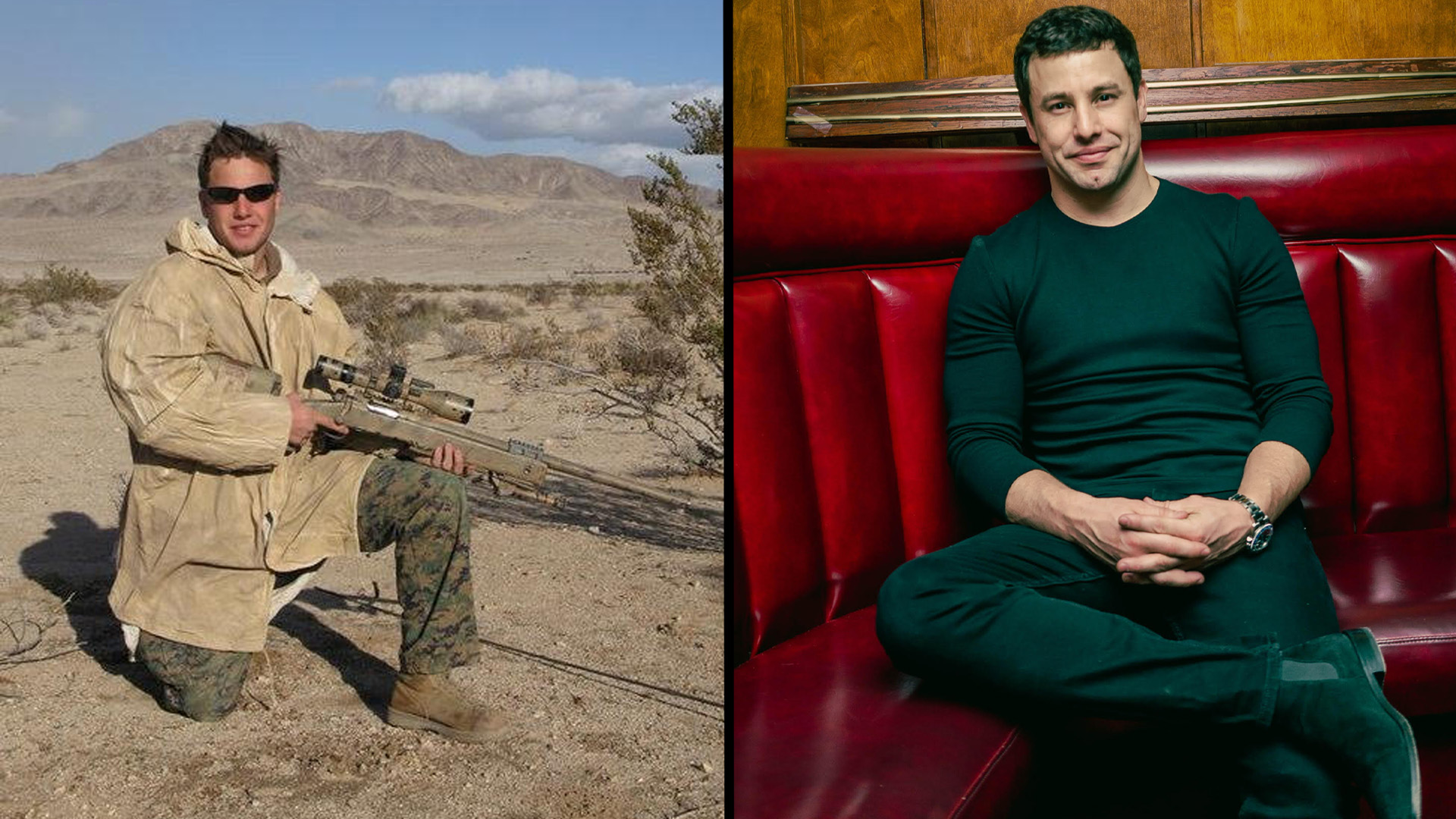

Stand-up comedy is a constant grind for comedians. But rising star Bryson Banks credits his training in a Marine Corps sniper platoon for his ability to persevere through the brutal grind of the comedy circuit. “Suffer patiently and patiently suffer,” as his old sniper platoon used to say.
“There’s a lot of that in the beginning of stand-up comedy. Even though you have these opportunities, you still have some failures along the way. Nobody gets to big places without some failures,” Banks said. “One of the hardest parts about standup is that so many people see your failure. I think that’s why there are so few great stand-ups. It takes so much grit to just continue picking up the pieces and keep grinding.”
His methodology has proven successful, as Banks has continued to gain momentum on the comedy circuit. Most recently, he put on a stand-up comedy show for Higher Ground, a non-profit dedicated to helping people with developmental disabilities, first responders, and veterans through recreational and therapeutic events.
They raised $83,000 that night, and it was the first time he’d been flown out to put on a show, receiving a full-on celebrity treatment. But he knows he hasn’t reached the top just yet.
“For me, the top looks like being undisputed as one of the greatest comedians to ever live. Netflix specials, selling out theaters, you know, stadiums one day,” Banks said. “I mean, we’re talking long-term goals — I’m not delusional — I break them all down into short-term and medium-term goals, and I’m a big believer in mindset.”
Subscribe to Task & Purpose today. Get the latest military news and culture in your inbox daily.
But it’s never an easy job, and shows aren’t always successful. Banks recalled a show he “bombed” early in his career that caused his date to leave in the middle of the show, and he never heard from her again.
“I didn’t do stand up for a month after that. It was the longest break I’ve ever taken from stand-up. It was so painful,” Banks said. “Another time I bombed so hard, I remember crying on the way home from the club because it was just so excruciating.”
The early struggles didn’t deter Banks. He is now a regular at the Laugh Factory in Los Angeles and has appeared on Kill Tony for two shows in a row. Banks had the unique experience of getting several laughs out of Bob Saget and then, the next week, tapping out Jeremiah Watkins with an American arm bar.

“I got on back-to-back, two weeks in a row, which is unheard of. You just put your name on the thing, and it’s the luck of the draw,” Banks said. “But I was really stoked that first set went so well.”
Banks didn’t start with the goal of being a comedian. After serving in the Marine Corps for four years, including a deployment to Iraq, he wanted to make it into showbiz and started taking some of the best acting classes available. He got better and better, landing multiple acting roles, but the process and preparation required to act wasn’t for him.
He then earned his graduate degree in psychology. While pursuing his degree, he noticed that his sense of humor would get laughs from his fellow students, but “usually at the expense of my teachers.” Through psychology, he started to figure out comedy and its place in his life.
His childhood was rough, but the more he dug into understanding who he was, the more he felt he was figuring out his new path forward. During one of his Kill Tony appearances, Banks was asked about his parents being racist and abusive, questions which came after he made jokes about the same. Though they are hard memories to process, he found a way to make a joke out of those experiences.
“Ultimately, comedy for me was a coping mechanism when I was younger to win people’s approval,” Banks said. “I’ve dove in to figure out what makes me tick, and that’s why I went to college to study psychology.”
He’s been putting in the work, doing up to 60 stand-up shows a month. Each one is a challenge, as he must get laughs from the audience while balancing his crude humor, which is a slippery slope. The audience is the meter that gives Bryson all the feedback he needs. Every set he does, the more fulfilled he feels.
“I’m living my life purpose-driven, and I’ve decided my purpose is just trial, error, research, studying, and putting the work in to spread love and laughter through comedy. As long as I’m doing that, I feel more fulfilled,” Banks said. “When I’m not working towards that purpose, I feel more depressed, so I found that it actually uplifts me by doing that. Then, the wins I’ve had along the way make me believe that I’m on the right path.”
UPDATE: 4/29/2022; This article has been updated to clarify Banks’ military service in the Marine Corps.
The latest on Task & Purpose
- 75th Ranger Regiment sweeps Best Ranger, Best Mortar, and International Sniper competitions
- Married Army couple win back-to-back Sapper school awards
- Special Forces engineers are training to dig ditches and destroy tanks
- This is why Marines were at Mar-a-Lago
- Supreme Court sides with Army veteran in overlapping GI Bill benefits case